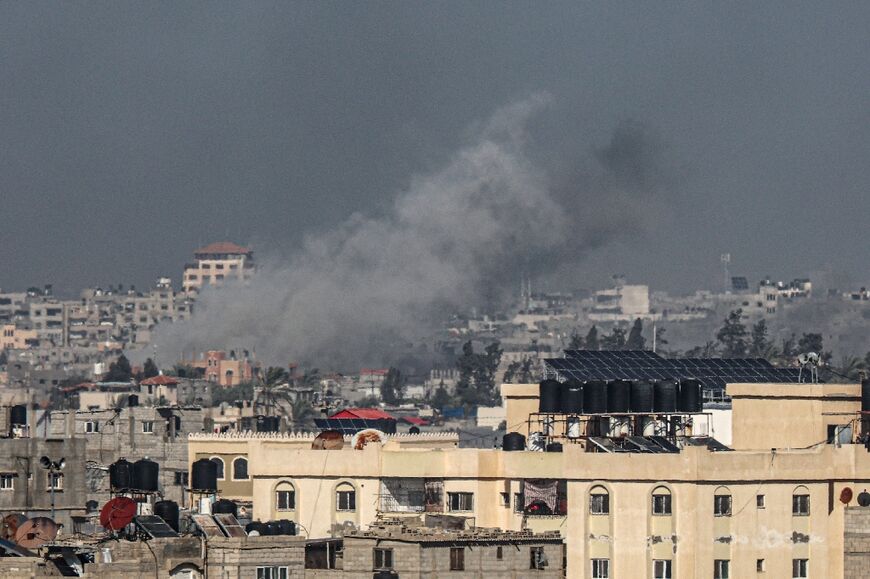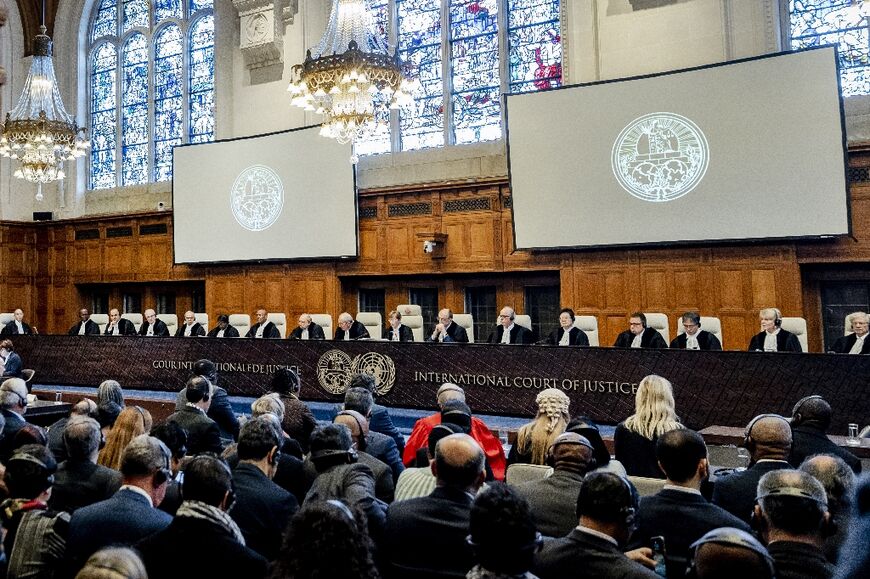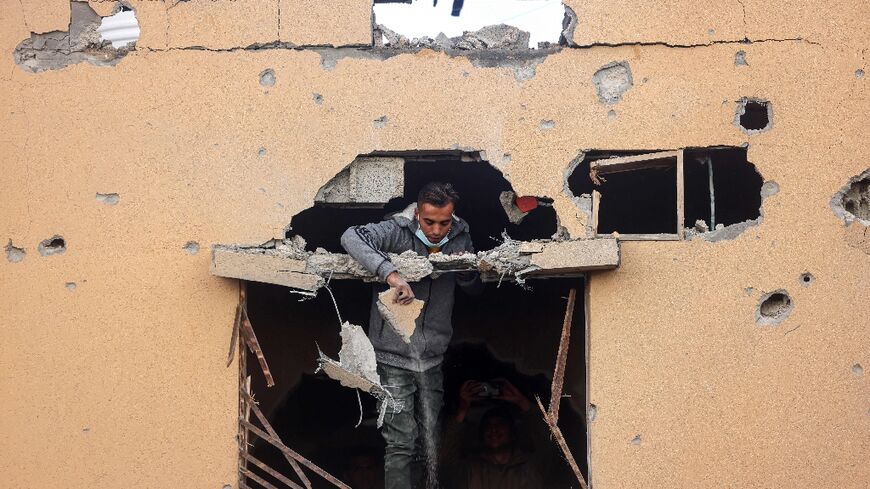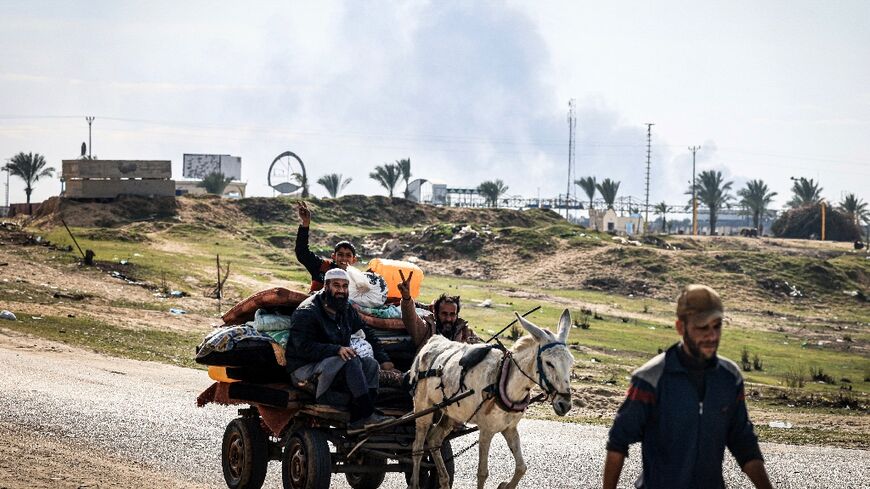Civilians trapped by fighting in Gaza

Thousands of civilians were trapped in southern Gaza by bombardment and fighting between Israeli troops and Hamas fighters on Saturday, a day after the top UN court ruled Israel must prevent genocidal acts.
Growing alarm has focused on Khan Yunis, the biggest city in Gaza's south, where the two main hospitals were barely functioning under the weight of the relentless bombardment and the press of thousands in need.
Witnesses reported more overnight strikes on Khan Yunis, the current epicentre of Israel's assault on Gaza, and the Palestinian Red Crescent Society said some of the dead and wounded had been taken to the city's barely functioning Al-Amal hospital.
The strikes came after the International Court of Justice in The Hague ruled that Israel must prevent possible acts of genocide in its war against Hamas, the Islamist group that controls Gaza.
The court, which has virtually no enforcement power, stopped short of calling for an end to the fighting but also said in its ruling that Israel must facilitate "urgently needed" humanitarian assistance.
"This is the first time the world has told Israel that it is out of line," said Maha Yasin, a 42-year-old displaced Palestinian woman in Gaza.
"What Israel did to us in Gaza for four months has never happened in history."
Israeli Prime Minister Benjamin Netanyahu rejected the case as "outrageous".
Israel's relentless bombardment and siege of the Palestinian territory began soon after Hamas's unprecedented October 7 attacks that resulted in about 1,140 deaths in Israel, mostly civilians, according to an AFP tally of official Israeli figures.
Militants also seized about 250 hostages and Israel says around 132 of them remain in Gaza, including the bodies of at least 28 dead captives.
Israel has vowed to crush Hamas and the health ministry in Gaza says the Israeli military offensive has killed at least 26,083 people, about 70 percent of them women and children.
- Hospital services 'collapse' -
Fierce fighting between Israeli troops and Hamas fighters has raged for days around Khan Yunis, forcing tens of thousands to flee further south to Rafah on the border with Egypt.
With a humanitarian crisis growing in Khan Yunis and northern areas of Gaza, UN agencies say most of the estimated 1.7 million Palestinians displaced by the war are crowded into Rafah.
At Khan Yunis's Nasser Hospital, the largest in the besieged city, Doctors Without Borders said surgical capacity was "virtually non-existent".
The international medical aid organisation said in a news release that medical services at the hospital had "collapsed" and the few staff who remained "must contend with very low supplies that are insufficient to handle mass casualty events".
World Health Organization chief Tedros Adhanom Ghebreyesus said on social media platform X that 350 patients and 5,000 people displaced by the fighting remained at the hospital and that fighting in the vicinity continued.
He said the Nasser Hospital was "running out of food, fuel and supplies" and called for an immediate ceasefire so they could be replenished.
The Palestinian Red Crescent Society said Israeli tanks were targeting Al-Amal hospital, another of the few remaining medical facilities in Khan Yunis, and that it was "under siege with heavy gunfire".
The Israeli military accuses Hamas of having tunnels under hospitals in Gaza and of using the medical facilities as command centres.
Meirav Eilon Shahar, Israel's ambassador to the United Nations in Geneva, accused the WHO this week of collusion with Hamas by ignoring Israeli evidence of Hamas's "military use" of Gaza hospitals.
Tedros rejected the accusation, saying it could "endanger our staff who are risking their lives to serve the vulnerable".
- Diplomatic relations sour -
Relations between Israel and the UN agency for Palestinian refugees soured after the UNRWA said tanks had shelled one of its shelters in Khan Yunis on Wednesday, killing 13 people.
UNRWA said on Friday it had sacked several employees accused by Israel of involvement in the October 7 attack.
The UN Security Council will meet on Wednesday to discuss the ICJ's ruling, the council's presidency announced.
The European Union called for the "immediate" application of the ICJ's decision.
The ruling in The Hague was based on an urgent application brought by South Africa, long a supporter of the Palestinian cause, but a broader judgment on whether genocide has been committed could take years.
A security source told AFP on Friday that the head of the US Central Intelligence Agency will meet officials from Israel, Egypt and Qatar "in the coming days in Paris" to try to reach a deal with Hamas.
A week-long truce in November saw an exchange of hostages for Palestinian prisoners, however the White House warned that "imminent developments" are unlikely.
The war has led to fears of wider conflict, and US forces said they had struck a target in Huthi-held Yemen after an attack on a British tanker in the Gulf of Aden.








